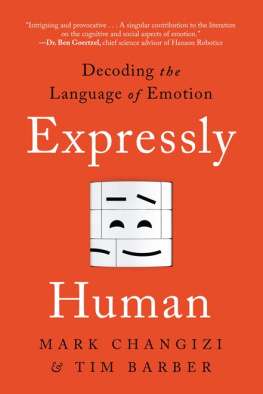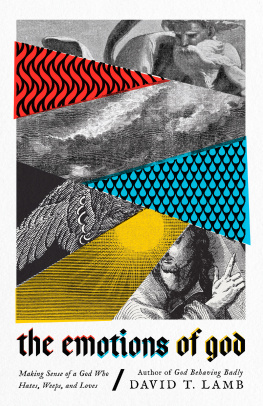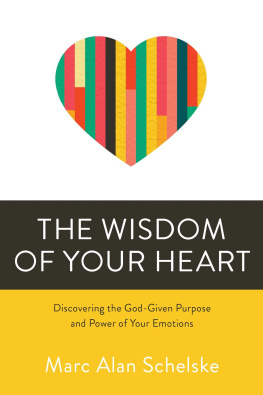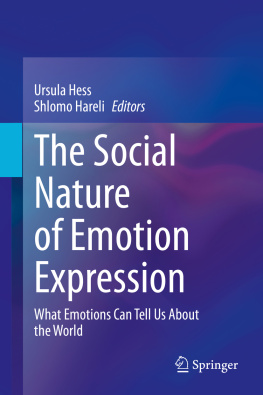Contents
Guide
Praise for Expressly Human
Changizi and Barber manage to say some intriguing and provocative new things about a very familiar topichuman emotion. The connections they draw between emotion, negotiation, reputation, and social network dynamics are original and important. The theories presented also suggest a variety of practical applications, from new directions for developing AI systems with human-like emotions to new ways of structuring social network software and decentralized organizations. A singular contribution to the literature on the cognitive and social aspects of emotion.
Dr. Ben Goertzel, Chief Science Advisor of Hanson Robotics and leader of the software team behind the Sophia robot
A deep examination of the power of emotional expressions that masks cover, from a scientist who has been a thoughtful, well-informed, and dedicated voice, continually on the vanguard of analyzing the harms of the post-2020 era.
Naomi Wolf, American feminist and author of The Beauty Myth
Expressly Human is an insightful journey into the primal language that drives human interactions: our emotional expressions. It creates a bold and innovative map that links our emotional expressions with how we negotiate and relate with each other. The authors combine their collective intelligence to open your mind to show you an intriguing perspective on how this primal language is the fundamental signaling network that drives how we socially interact with each other. Given our societys current state of affairswith increasing social isolation, fragmentation, and commoditizationthe timing of this important work is impeccable. Is this the red pill for emotional expressions? Only one way to find out...
Michael Mantz, board certified psychiatrist at Santa Barbara Integrative Psychiatry
Just as the periodic table helped turn alchemy into chemistry, this work on emotional expressions points the way to a more systematic and scientific understanding of the human mind.
Nick Cassimatis, former head of Samsung North American AI Research and professor of cognitive and computer science at Rensselaer Polytechnic Institute
What makes humans human? Emotion. But its hard and slippery to grab. Arguably, this book is the first attempt to systematically analyze human emotional expressions (the first language in human evolution) in the context of exchange and negotiation.
What has never been explicitly stated is stated clearly and comprehensively here. Yet, the book offers much more: Its catchy, eye-opening, amusing, and profound reading.
Shinsuke Shimojo, professor of experimental psychology at Caltech
Also by Mark Changizi
The Brain from 25,000 Feet
The Vision Revolution
Harnessed
Human 3.0
On the Origin of Art (with Steven Pinker, Geoffrey Miller, Brian Boyd, and David Walsh)
Expressly
Human
Decoding the
Language of Emotion
MARK CHANGIZI
& TIM BARBER

BenBella Books, Inc.
Dallas, TX
Expressly Human copyright 2022 by Mark Changizi and Tim Barber
All rights reserved. No part of this book may be used or reproduced in any manner whatsoever without written permission of the publisher, except in the case of brief quotations embodied in critical articles or reviews.
BenBella Books, Inc.
10440 N. Central Expressway
Suite 800
Dallas, TX 75231
benbellabooks.com
Send feedback to
BenBella is a federally registered trademark
First E-Book Edition: July 2022
Library of Congress Control Number: 2021062760
ISBN 9781637740484 (trade paperback)
ISBN 9781637740491 (electronic)
Editing by Leah Wilson and Greg Brown
Copyediting by Scott Calamar
Proofreading by Marissa Wold Uhrina and Michael Fedison
Indexing by WordCo Indexing Services, Inc.
Text design and composition by Aaron Edmiston
Cover design by Pete Garceau
Cover image Shutterstock / Yurchanka Siarhei
Special discounts for bulk sales are available. Please contact .
This book goes out to zucchini bread everywhere.
Contents
Our First Language
Our story in this dialogue-filledbut also deeply expressive!book is about the sophisticated ancient first language of emotional expressions that social animals, including us, have relied on for millions of years.
We all know this language. But most of us dont appreciate just how powerful it is because its utterly intuitive and natural for us, requiring no conscious thought. Therefore we think it must be simple. While we modern humans are all language! language! language! bragging about our very recent capability (consider that for most of hominid history, we lived completely without language), the truly winning communication system is this ancient, emotional one. This combination of gestures, looks, body language, tonal shifts, and more is a sophisticated feat of nature, not the emotional fluff many of us take it to be. And its all geared toward negotiation, navigating conflict, and figuring out how to live symbiotically in communal societies.
Its fine and dandy to (confidently) say that emotional expressions are social animals first language and the key to grasping how social animals have dealt with community living. Surely theres truth in thatnearly everyone thinks emotional expressions are in some way concerned with regulating social interactions. The tricky part, and the topic of this book, is fleshing out exactly how emotional expressions serve as a language and why we have the emotionally expressive repertoire we do.
We will have quite a bit to say later in the book about how emotional expressions relate to emotions themselves, but the big puzzle were trying to solve isnt about why we have emotions, or how emotions relate to emotional expressions. Rather, the big problem is about why we have emotional expressions in the first place, and how they have to function in order to do their job: allowing smart social creatures to do their social thing.
Sentences Versus Sentiments
One thing we know about emotional expressions is that, whatever their purpose, they arent unusual. Nor are they only occasionally used. Rather, emotional expressions are something social animals use all the time. Even today, in our highly linguistic age, we emotionally express more than we speak, although theres a bit of an apples-to-oranges issue in trying to quantify that.
When we speak, were almost always simultaneously emotionally expressing ourselves through prosody, intonation, emphasis, word choice, facial expressions, and gestures. Unless were purposely trying to imitate a robots voice, whenever we speak, were also emotionally expressing. But were also quite often emotionally expressing ourselves without words at all. Language is almost always accompanied by emotional expressions, but emotional expression is not always accompanied by language. In this sense, emotional expressions still dominate language.











